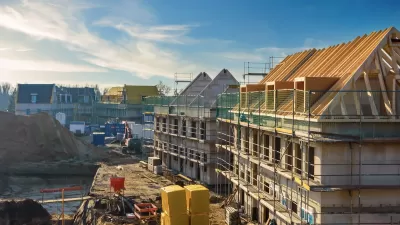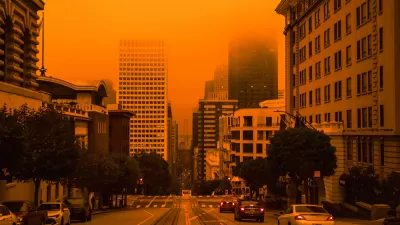Saying "no" to Walmart does not remove the wants and needs they exist to serve. If you want a more locally-oriented community, you need a more local-friendly system, says Scott Doyon.
“'I don’t shop at Walmart.' Talk about a loaded phrase. Five simple words, but issue them collectively and you effectively open a Pandora’s Box of suggestion: Where you stand economically. Where you stand politically. How you feel about the environment. Or localism. Or capitalism."
Scott Doyon applies systems thinking to the hard realities that created Walmart, and how we might get more resilient communities via changes in land use regulations, transportation patterns, tax incentives, and other system obstacles.
"The system that fosters Walmart is not part of the natural order. It’s not an eternal and unchanging truth we must contend with. We created it, and we can recreate it if we so choose. For now, we’re in a position to take these matters on by choice. But in a world of depleting energy resources, crazy climate, and polarized politics, that may not always be the case. We may simply wake up one day and find that the system has failed and Walmart’s fleet of rolling inventory will no longer be dropping by."
FULL STORY: Walmart and the Quest for a Better Mousetrap

Planetizen Federal Action Tracker
A weekly monitor of how Trump’s orders and actions are impacting planners and planning in America.

Map: Where Senate Republicans Want to Sell Your Public Lands
For public land advocates, the Senate Republicans’ proposal to sell millions of acres of public land in the West is “the biggest fight of their careers.”

Restaurant Patios Were a Pandemic Win — Why Were They so Hard to Keep?
Social distancing requirements and changes in travel patterns prompted cities to pilot new uses for street and sidewalk space. Then it got complicated.

Platform Pilsner: Vancouver Transit Agency Releases... a Beer?
TransLink will receive a portion of every sale of the four-pack.

Toronto Weighs Cheaper Transit, Parking Hikes for Major Events
Special event rates would take effect during large festivals, sports games and concerts to ‘discourage driving, manage congestion and free up space for transit.”

Berlin to Consider Car-Free Zone Larger Than Manhattan
The area bound by the 22-mile Ringbahn would still allow 12 uses of a private automobile per year per person, and several other exemptions.
Urban Design for Planners 1: Software Tools
This six-course series explores essential urban design concepts using open source software and equips planners with the tools they need to participate fully in the urban design process.
Planning for Universal Design
Learn the tools for implementing Universal Design in planning regulations.
Heyer Gruel & Associates PA
JM Goldson LLC
Custer County Colorado
City of Camden Redevelopment Agency
City of Astoria
Transportation Research & Education Center (TREC) at Portland State University
Camden Redevelopment Agency
City of Claremont
Municipality of Princeton (NJ)




























